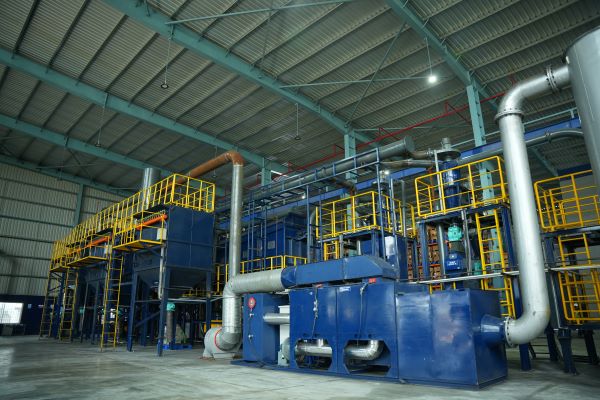To invest Rs. 250 crore in downstream hydrometallurgy plant in next 2~3 years

LICO Materials, a pioneer in end-of-life battery recycling and refurbishing of lithium-ion batteries inaugurates India’s largest state-of-the-art battery recycling facility in Bengaluru, with an infeed capacity of 4GWh per annum with scale up plan to 10GWh. The facility will address the challenges of securing a stable supply of critical materials and contribute to India’s ambition of achieving 30% electric vehicle (EV) adoption by 2030.
With India’s EV industry expected to grow by 250% and energy storage sector to reach 42GW by 2032, recycling of used batteries will play a crucial role in recovering critical minerals to support the battery circular economy.
Speaking at the Inauguration, Gaurav Dolwani, CEO of LICO Materials, said: “This new facility marks a significant milestone in our journey to redefine lithium-ion battery recycling & repurposing in India. As we scale up our operations, we aim to bridge the gap in the supply chain for critical battery materials, reduce dependence on imports, and contribute to India’s clean energy transition. Our zero-liquid-discharge facility is capable of recycling & repurposing 17,500 metric tons of battery that shows our commitment to sustainability and innovation”.
By 2027, LICO plans to recycle batteries equivalent to 200,000 metric tons of electric cars annually, which translates to significant environmental savings, including the conservation of 100 million litres of water and a reduction in CO2 emissions equivalent to the absorption capacity of 37 million trees.
Dolwani also said, “LICO has completed a feasibility study and is finalizing plans for a downstream project to build a hydrometallurgy plant with an investment of Rs. 250 crores in next 2~3 years”. This facility will recover metal salts from the black mass currently produced, achieving battery-grade purity. The recovered metal salts will be supplied to gigafactories and energy storage systems to close the loop in the battery materials supply chain.
Subscribe to our newsletter & stay updated.